Is the Chaos Around You Engineered?
Is the chaos around you a random storm—or a masterful design? Look deeper: every crisis, every collapse, every eroded freedom may be a deliberate move to control your future.
Do you feel it? The world spiralling out of control—governments crumbling under their own weight, institutions losing their credibility, and trust, once the cornerstone of human connection, evaporating like dew under a scorching sun. Everywhere you look, fear is the prevailing currency. Disconnection festers, and the average person is left grasping for meaning in an unrecognizable reality.
But ask yourself: what if this chaos isn’t organic? What if the disorder you see and feel isn’t an unfortunate consequence of a complex, modern world but an orchestrated campaign—a carefully constructed web of confusion designed to serve a purpose? What if every failing institution, every systemic collapse, and every polarizing headline is part of a deliberate strategy to weaken individuals, destabilize nations, and consolidate power in the hands of an un-elected elite?
The idea may seem too dark to entertain, too unnerving to accept. After all, we are told to believe that we are simply witnessing the struggles of a world grappling with growth, technology, and globalization. But look closer. This chaos doesn’t just erode trust—it creates dependence. It doesn’t just destabilize societies—it shifts control to hidden hands. This isn’t a failure; it’s a framework. And if it continues unchecked, the endgame will redefine freedom, autonomy, and the very meaning of humanity itself.
Now, the question isn’t, Is chaos engineered? Instead, it’s: How much longer will you accept the illusion before you act?
Zbigniew Brzezinski’s ominous warning in Between Two Ages (1970) was not just an observation—it was a prophecy of deliberate decay. He described a world where institutional loyalties would crumble, not as a side effect of progress, but as a calculated step toward global control. This unravelling of trusted systems—education, healthcare, the judiciary—was never meant to foster freedom; it was engineered to destabilize the pillars that sustain it.
These institutions, once the backbone of societal order, are being hollowed out and repurposed to breed vulnerability and disorientation. Education no longer inspires critical thinking—it conditions obedience. Healthcare prioritizes profit and control over well-being. The judiciary increasingly serves those with power, leaving justice as a relic of the past. Each failure erodes trust, but this erosion is the design. It leaves societies fractured and desperate, searching for solutions offered by the very architects of the chaos.
Margaret Heffernan, in Wilful Blindness, exposed a darker layer of this agenda. She revealed how societies unwilling to confront uncomfortable truths create fertile ground for manipulation. This blindness is not a coincidence; it is nurtured. Distracted by trivialities, polarized by divisive rhetoric, and overwhelmed by crises, the masses are rendered pliable—ripe for control. Manipulation becomes a weapon wielded by those who benefit most from the chaos.
Behind the veil of disorder lies a chilling truth: this confusion isn’t endured; it’s orchestrated. It’s a strategy to tighten the grip of invisible power structures, reshaping the world not to liberate, but to dominate. The question is not whether the chaos is deliberate—it’s how much longer society will allow it to continue unchecked.
COVID-19: A Trial Run for Global Control
The COVID-19 pandemic wasn’t just a health crisis—it was a dress rehearsal for technocratic dominance. Under the guise of protecting public health, an elaborate system of control was tested, revealing how far populations could be pushed into compliance. The examples are as chilling as they are revealing:
Lockdowns as Behavioural Experiments: Entire populations were subjected to prolonged lockdowns, often with no clear metrics for success. Small businesses were crushed, while mega-corporations thrived, consolidating economic power into fewer hands.
Digital Tracking Normalized: Contact tracing apps, QR codes, and vaccine passports introduced millions to constant surveillance, conditioning them to accept their every move being monitored and recorded.
Media as an Enforcer: Mainstream outlets repeated official narratives in lockstep, silencing dissenting voices. Anyone questioning the measures or highlighting inconsistencies was branded a “conspiracy theorist” and de-platformed.
The Vaccine as a Gateway to Dependency: Governments tied basic freedoms—travel, employment, education—to compliance with vaccine mandates. This was not about public health; it was a chilling demonstration of how easily rights could be stripped away under the guise of safety.
Fear as the Ultimate Weapon: 24/7 media coverage, death toll counters, and predictions of apocalyptic outcomes paralysed populations into blind compliance. Rational debate was replaced with emotional manipulation.
The pandemic was not just an unforeseen crisis but a meticulously exploited opportunity to test technocratic strategies for control. It showed how easily people could be persuaded to trade liberty for an illusion of security—and how willingly they could accept a future dominated by surveillance, coercion, and centralized power.
The Moment of Revelation
Fifteen years ago, I clung to the same comforting illusions that most people hold dear: that governments existed to serve the people, that laws ensured justice, and that public institutions safeguarded our well-being. I believed science was impartial, education was about enlightenment, and freedom was a given. Above all, I trusted in the inherent decency of those in power.
But a chance discovery shattered that illusion. While helping a friend research a book, I stumbled upon a "glitch in the matrix"—an unsettling and undeniable truth so vast it turned my worldview upside down. What I uncovered was not a world of competing ideologies or harmless inefficiencies, but a shadowy network of interwoven agendas, ideologies, and individuals working toward a singular and chilling goal: the consolidation of global control.
Names like George Soros, Bill Gates, Klaus Schwab, David Rockefeller, and Henry Kissinger surfaced repeatedly, along with powerful organizations such as the Club of Rome, the Bilderberg Group, the Council on Foreign Relations, and the World Economic Forum (WEF). These weren’t disparate entities; they were interconnected cogs in a vast machine designed to re-engineer society under the pretence of progress, sustainability, and collective well-being, all while quietly eroding individual autonomy.
Adding to this revelation was the discovery of the World Economic Forum’s Young Global Leaders program, which has produced a cadre of influential figures who either have in the recent past or currently hold positions of power. Leaders like Justin Trudeau (Canada), Jacinda Ardern (New Zealand), Emmanuel Macron (France), Volodymyr Zelenskyy (Ukraine), and even Mark Rutte (Netherlands) all share a common thread: they are alumni of a program that teaches alignment with globalist goals over national interests.
The agenda became increasingly clear: behind the veil of buzzwords like "sustainability," "equity," "Build Back Better," and "The Great Reset" lies a blueprint to centralize power, dismantle sovereign democracies, and implement a new world order governed by un-elected technocrats. Their tools include economic dependency, digital surveillance, and psychological manipulation, all wielded under the guise of solving humanity's greatest challenges.
The illusion of progress is their greatest weapon. The comforting stories we tell ourselves—that governments care, that science serves truth, that laws protect us—are the very narratives these elites exploit to tighten their grip. And as the pieces of this puzzle fell into place, I realized that we are not only spectators in this system but complicit participants unless we choose to wake up and resist.
The unsettling truth is this: the world isn’t evolving into chaos by accident. It’s being methodically dismantled and reshaped, not for our benefit, but for theirs. The only question that remains is whether we will continue to accept it or rise to confront it.
Unmasking Technocracy
The ideology reshaping our world isn’t socialism or Marxism—those are convenient distractions. The true agenda is “technocracy”, a system first conceived in the 1920s during the height of the industrial age. Born out of a fascination with scientific and technological progress, technocracy emerged as a vision to govern society through data, engineering, and expert-driven solutions. It gained traction in the 1930s, particularly in North America, as an alternative to democracy and capitalism, both of which were seen as failing in the face of the Great Depression.
Technocracy proposed replacing elected governments with a scientifically managed society led by engineers, scientists, and technical experts. Proponents believed that technology could eliminate inefficiency and human error, creating a utopia governed by rational decisions. But beneath the promises of logic and progress lurked a dangerous authoritarian undercurrent: the total subjugation of individual freedom to centralized, unelected control.
Though technocracy lost momentum mid-century, it never disappeared. In the 1970s, it resurfaced under figures like David Rockefeller, with the creation of global organizations designed to advance its principles subtly. Today, its ideals have been rebranded as "sustainability," "smart growth," and "data-driven governance," with institutions like the World Economic Forum (WEF) leading the charge.
Technocracy’s Modern Playbook
Technocracy thrives on crises, transforming emergencies into opportunities to consolidate power. The COVID-19 pandemic provided a chilling example. Under the guise of public health, governments and organizations implemented sweeping changes that mirrored the technocratic vision:
· Digital Surveillance: Contact tracing, vaccine passports, and biometric tracking normalized invasive monitoring.
· Erosion of Freedom: Lockdowns and mandates curtailed individual rights, conditioning people to accept compliance as a necessity.
· Centralized Control: Unelected entities like the World Health Organization (WHO)* and the WEF influenced national policies, sidelining democratic processes.
The technocratic strategy extends beyond pandemics. Climate change, economic instability, and other global emergencies are systematically exploited. Each crisis becomes a pretext to centralize authority, diminish individual autonomy, and expand surveillance. In this system, human beings are reduced to data points—analysed, managed, and manipulated to fit the demands of an all-encompassing machine.
The Technocratic Vision: Utopian Façade, Authoritarian Core
Beneath the polished rhetoric of "efficiency" and "progress" lies a stark reality: technocracy is not about solving problems but controlling people. It replaces democracy with rule by an elite class, where algorithms decide outcomes, and human agency becomes obsolete.
This is not the distant dream of a few idealists—it’s an active agenda already shaping global governance. The push for digital currencies, universal basic income, and centralized health policies are all hallmarks of technocracy. What’s most alarming is how easily its principles have infiltrated societies, camouflaged as solutions to humanity’s greatest challenges.
The time to unmask this ideology and confront its authoritarian ambitions is now. If we fail, we risk a future where individuality, freedom, and human dignity are not just endangered—they are erased.
The Death of Property, Freedom, and Dignity
Imagine waking up in a world where you own nothing—not your home, your car, your savings, or even the food on your plate. This is not dystopian fiction; this is the trajectory technocracy envisions. Under the guise of equality and sustainability, the ultimate goal is to erase private ownership entirely, replacing it with a system where you “rent” everything from the state or corporations. In return, you’re handed a universal basic income (UBI), just enough to survive—provided you remain obedient.
Every transaction is monitored, every resource tightly controlled. If you think this sounds far-fetched, look at the push for digital currencies, which promise convenience while ensuring every purchase, donation, or financial action is traceable. There’s no room for privacy. What you buy, consume, or even save is scrutinized. Any deviation from the system's expectations is labelled “wasteful” or “selfish.” And penalties? They come swiftly, ensuring compliance.
Gone is the ability to plan your future. Savings accounts are replaced with digital rations that expire if unused. Emergency supplies like food or water become acts of defiance, criminalized under the pretext of “hoarding.” Even the idea of growing your own vegetables in a backyard becomes an affront to the system, a rebellious act threatening their tightly controlled narrative.
The promise of UBI is alluring. “Why struggle to work when we can provide for you?” they say. But this isn’t liberation—it’s enslavement. By eliminating your ability to generate wealth or accumulate assets, technocracy leaves you powerless. You are tethered to the system, and any dissent risks your survival. Speak out? Your UBI is revoked. Refuse compliance? You lose access to resources essential for life.
This isn’t progress—it’s dependency, engineered to ensure that resistance is futile.
Freedom Sacrificed to Control
The destruction of private property doesn’t just strip away ownership—it dismantles freedom itself. Property has always been the foundation of independence. Without it, you cannot build, grow, or secure a future outside the system’s grasp. Property ownership has been a buffer against tyranny, enabling people to weather storms, protect their families, and preserve dignity. Technocracy understands this—and that’s why it must be eradicated.
Once private property is gone, so too is your ability to dissent. A population that owns nothing is entirely at the mercy of its rulers. There is no escape when everything you need—your home, your food, your energy—is controlled by the same system that monitors your every move.
The Crushing of Human Dignity
When you take away property, you take away hope. Hope for a better tomorrow, for building something to pass on to your children, for achieving personal goals. Without property, humanity is reduced to mere survival—living day-to-day on handouts determined by algorithms and unelected overseers.
Even the simple joys of life—owning a family home, saving for a vacation, or gifting a cherished heirloom—become relics of a bygone era. Instead, you are left with sterile dependence, stripped of autonomy and dignity, forced to conform to an unfeeling, technocratic machine.
A Soulless Future
This is not a society—it’s a factory. People are reduced to cogs in a soulless machine, living only to serve a system that promises efficiency but delivers control. Freedom is relegated to memory, dignity becomes a hollow word, and humanity is extinguished in the name of “progress.”
We are being told that this is the path to sustainability and equality. But the question is: at what cost? Are you prepared to give up everything that makes life worth living? Are you ready to trade your autonomy for a fleeting sense of security? Because once this system is in place, there is no going back.
The time to act is now. Ownership is not just about property—it’s about freedom, dignity, and hope. If we allow technocracy to strip us of this, we lose not just our possessions but our humanity itself.
China: The Living Blueprint of Technocracy in Action
When one gazes at the intricate machinery that is modern China, it’s tempting to accept the world’s shorthand explanation: a Communist juggernaut. Yet, beneath the well-maintained façade of Maoist ideology lies a very different reality. China is not the world’s Communist powerhouse; it is its premier example of technocracy in full swing. The so-called Communist social credit system, which has drawn both admiration and criticism globally, is not an artifact of Marxist dogma but the embodiment of technocratic governance—a model where data,
China is Communist in name only. While the ruling Communist Party of China (CPC) continues to wear its ideological mantle, its actions reveal priorities that are technocratic and pragmatic, not ideological. In truth, China's governance rests not on the principles of Marx and Engels, but on the technocratic playbook: a data-driven, technology-focused system designed to optimize efficiency and control.
Under traditional communism, private property and capitalism are eradicated in favor of collective ownership. Yet, China’s economy operates on a distinctly hybrid model, blending state control with capitalist market dynamics. Innovation, entrepreneurship, and global trade are championed—practices antithetical to classical Communist doctrine. These hallmarks of technocracy have enabled China to become an economic superpower, driven by modernization and technological advancement rather than ideology.
Nowhere is China’s technocratic identity more apparent than in its technological focus. From artificial intelligence to robotics and biotechnology, the nation invests heavily in the tools of the future. Data-driven strategies underpin nearly every facet of governance, from urban planning to population management.
Policies like Made in China 2025 and leadership in 5G and AI innovation illustrate China’s reliance on technology to tackle societal challenges and reinforce its global influence. The Social Credit System—a hallmark of technocracy—combines vast surveillance networks with algorithmic decision-making to enforce order and predictability. This is not Marx’s collective utopia; it’s a world of scientific precision and control.
While the CPC continues to dominate China’s political landscape, its governance increasingly reflects technocratic values. Leadership positions favour technical expertise over ideological purity, with many of the country’s top officials holding advanced degrees in engineering, economics, and science. Decision-making is guided by pragmatism and problem-solving, sidelining the ideological fervour that defined early Communist regimes.
True communism shuns global capitalist systems, yet China has thrived through integration into these very structures. Its dominance in global trade, reliance on foreign investment, and competitive technological exports highlight its technocratic pragmatism. Rather than isolationism, China’s strategy is one of interconnectedness, leveraging global systems for its own advancement.
Despite this transformation, the CPC clings to the Communist label as a tool for maintaining political legitimacy. The Party’s historical narrative—rooted in the revolutionary ideals of Mao Zedong—allows it to justify its absolute authority and ensure social stability. Yet, this label is little more than a vestige, a mask for a governance system driven by technocratic principles.
A Technocracy in All but Name
China is not a Communist state in practice. While the rhetoric persists and the Party maintains control, its priorities and governance are unmistakably technocratic. From its data-driven economy to its technology-centred surveillance, China exemplifies a modern technocracy.
Its ideological commitment to communism has long since been supplanted by an efficiency-driven, technology-based framework. Far from being the last great Communist stronghold, China is the living embodiment of technocracy, a nation where technology and expertise dictate the course of its future. If the world seeks an example of technocracy in action, it need look no further than China.
A Warning to the World: The Technocratic Playbook Expands
Make no mistake: China’s Social Credit System is not an isolated experiment confined to its borders. It is a prototype, a working model for a global technocratic framework. The technocrats of the world are actively planning and advocating for similar schemes to be implemented globally under the guise of enhancing security, convenience, and efficiency.
Evidence of Global Technocratic Intentions
1. World Economic Forum (WEF) Advocacy:
The WEF has openly praised China’s technological systems. Klaus Schwab, founder and executive chairman of the WEF, remarked on the need to “reset” capitalism and introduce governance mechanisms that align with technocratic principles. Documents such as The Great Reset and The Fourth Industrial Revolution outline a future where data-driven governance and centralized controls dictate societal norms.2. Western Surveillance Systems:
Governments in Western democracies are quietly adopting policies eerily similar to China’s Social Credit System. For example, the European Union’s digital identity framework, piloted through the European Digital Wallet initiative, centralizes personal data for access to essential services. Critics argue this framework has the potential to evolve into a centralized monitoring system, limiting freedoms based on compliance with state-imposed norms.3. COVID-19 as a Catalyst:
During the COVID-19 pandemic, governments worldwide adopted surveillance mechanisms in the name of public health. From digital vaccine passports to QR-code-based entry systems, these measures normalized the idea of state-controlled access to movement and resources. China’s model provided a template for these policies.4. Big Tech’s Role:
Corporations like Google, Microsoft, and Palantir collaborate with governments to develop surveillance technologies and data ecosystems. These technologies, ostensibly created for convenience or security, lay the groundwork for global social credit systems. For instance, Palantir’s AI-driven platforms have been adopted by the U.S. and U.K. governments to manage sensitive data on health, policing, and finance.5. Digital Currencies and Programmable Money:
Central Bank Digital Currencies (CBDCs), being tested in numerous countries, could become enforcement tools in a technocratic social credit system. Unlike traditional money, CBDCs can be programmed to control how individuals spend based on their compliance with government rules. This is a significant step toward the kind of economic and social control China has perfected.
Technocracy’s Global March
The appeal of technocratic systems lies in their efficiency and predictability. Governments and technocrats argue that such systems promote equity and security. However, these systems come at the cost of individual autonomy and freedom, creating societies governed by algorithms rather than principles of liberty.
China’s Social Credit System has demonstrated how a society can be organized under such principles. It rewards compliance and punishes dissent, creating a citizenry that operates within the confines of government-defined behaviour. This is not merely a Chinese experiment—it is the aspiration of technocrats worldwide.
China’s rise as a technocratic state should serve as a stark warning to the rest of the world. The integration of advanced surveillance, data control, and economic manipulation is no accident—it is a deliberate step toward a global governance model where personal freedom is subordinated to systemic control. As governments and corporations embrace these technologies, the framework for a global social credit system is already being constructed, one digital policy at a time.
Technocracy Knocks at the World’s Door
China is not a Communist state in practice. While the CPC maintains political control and uses Communist rhetoric, its governance is unmistakably technocratic. From its data-driven economy to its technology-centred surveillance, China exemplifies a modern technocracy.
But the lessons of China’s Social Credit System must not be ignored. It is more than a national experiment—it is a global blueprint. The technocratic elite, from Silicon Valley to Geneva, are crafting a future where similar systems govern the rest of the world. Whether these systems are implemented under the banner of public safety, climate action, or economic reform, their endgame is clear: a world where technology doesn’t just serve humanity but governs it.
If freedom is to survive, the world must recognize technocracy for what it is: a seductive path to control masquerading as progress.
The Time to Resist Is Now
The dystopian future we once feared isn’t coming with an earth-shattering bang—it’s already here, creeping into our lives step by step, cloaked in the language of progress and safety. Each crisis, each law, each so-called “solution” is another quiet assault on your freedom, another calculated step toward a system of total control. This isn’t the plot of some far-fetched novel. It is reality unfolding before our very eyes.
COVID-19 was just the beginning. Under the guise of public health, governments around the globe tested how far they could push. They normalized lockdowns, surveillance, and movement restrictions, using fear as the ultimate weapon. The pandemic was not merely a health crisis—it was the proving ground for the tools of technocratic domination. Vaccine passports? Just a trial run. Mandatory QR codes? A foot in the door. Compliance became currency, and questioning the narrative was labelled as “dangerous.”
Now, the blueprint has been written. The next crisis—be it health, climate, economic, or otherwise—will bring more of the same. More tracking. More control. More chains disguised as solutions. And make no mistake:
Every link in this chain is designed to bind you tighter to a system that values efficiency over humanity, compliance over individuality, and submission over freedom.
You’re told these measures are for your safety. You’re told it’s all for the greater good. But look closer. What are you being asked to sacrifice? Privacy? Autonomy? Dignity? Piece by piece, the things that make you free are being stripped away. They want you to believe this is progress, but it’s a lie. Progress doesn’t shackle you. Progress doesn’t demand you trade liberty for security.
Will You Wake Up or Sleepwalk into Servitude?
The question is no longer, “Will this happen?” It is happening. Surveillance cameras watch your every move. Algorithms decide what you see, what you think, what you can and cannot say. Digital systems track your spending, your health, your beliefs, and even your social connections. The infrastructure for control is already built, and they’re tightening the screws with each passing day.
The real question is:
What will you do about it? Will you stand by and let your freedom slip away without a fight? Or will you rise, while there’s still time, to reclaim what is rightfully yours?
Let this be clear:
There is no neutral ground.
Every moment you stay silent, every excuse you make, every concession you accept—it’s another inch handed over to those who would control you. This isn’t hyperbole. It’s not fear-mongering. It’s the truth, and deep down, you know it.
There will be no second chances. If you wait, if you hope someone else will fight this battle for you, then you’ve already lost. The chains are being forged faster than ever, and if you think compliance will save you, you’re wrong. Every time you bow your head, the grip tightens. Every time you go along to get along, the system gets stronger.
But there is still hope—if you act. Refuse the lies. Speak the truth. Resist the control. Push back against every attempt to strip away your freedom, no matter how small or insignificant it may seem.
Reclaim your future. Protect the freedoms you owe to your children and the generations yet to come. The fight isn’t easy, but the alternative—a life lived under totalitarian technocracy—is far worse.
Do not wait for a saviour. The saviour is you. Do not wait for the perfect moment. That moment is now. Arm yourself with knowledge. Speak out, even when it’s uncomfortable. Rally others to the cause. Build networks of resistance. Refuse to participate in systems of control.
Your defiance today is the seed of liberty tomorrow.
History has shown us what happens when people choose safety over freedom. It has shown us what happens when good men and women remain silent. Do not let it be said that you were silent when your moment came.
The future is yours to fight for. The time to resist is now.
Recommended Reading:
By recommending these three books written by Patrick Wood, I declare that I have no financial or personal interest in its sale or distribution. This recommendation stems purely from a commitment to sharing valuable resources for those who wish to protect themselves from unwarranted influence by unscrupulous manipulators.

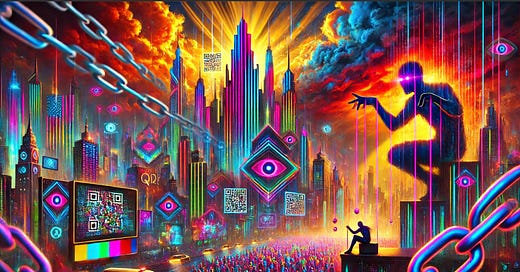






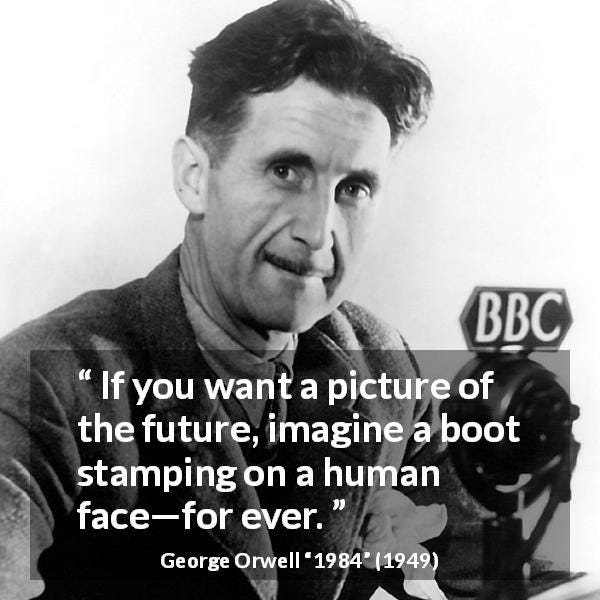

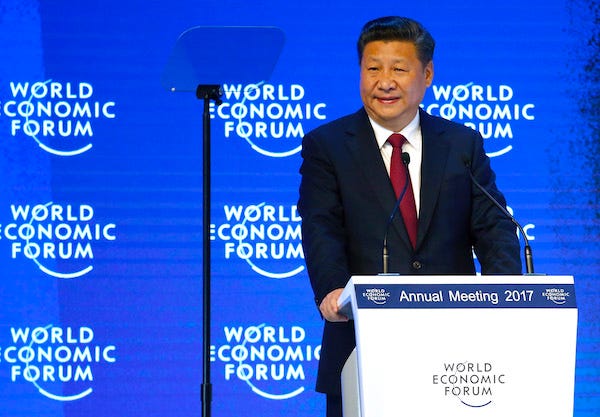
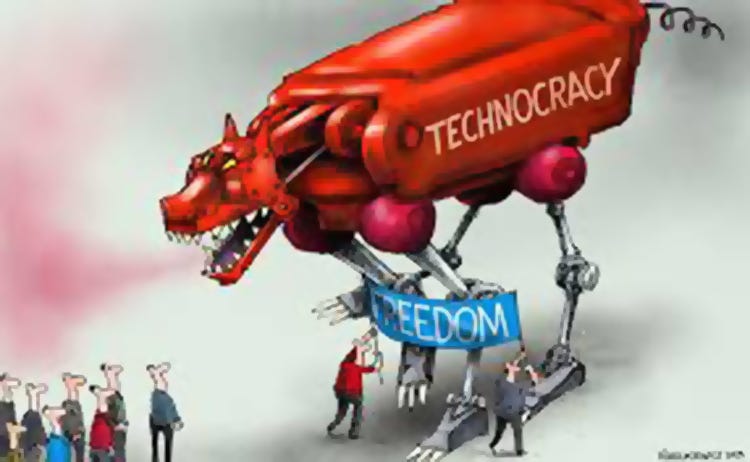

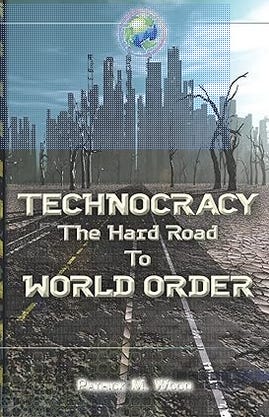

Re “The technocratic strategy extends beyond pandemics. Climate change, economic instability, and other global emergencies are systematically exploited. Each crisis becomes a pretext to centralize authority, diminish individual autonomy, and expand surveillance.”
Are these not crimes that have been committed, against the people?
Imprisonment via lockdowns and restrictions - a device to exploit and enslave the people; imposing mandatory vaccination upon people under threat of being excluded from livelihood and society; destruction of privacy via widespread surveillance e.g. ‘vaccine passports’.
All done without our consent…
Who did this? Who actually carried out these treacherous actions, followed the orders?
These are the ones who must be pursued at the base of the house of cards.
Bring the ‘order followers’ to account for their treachery.
For example… The medical practitioners who injected people they knew were under duress to comply, who reneged on their obligation to obtain valid consent and to ensure people maintained the freedom to decline a medical treatment.
Time to bring them to account.
Resist it at all costs.
Use cash always and for every transaction.
Do not support Walmart or big box Amazon stores.
Shop mom and pop. Use the corner butcher and farmers markets.
I stopped paying car insurance. I never had home insurance.I refuse to do the vehicle inspections. We set up community chat forms in inform others where the traffic cops and police are doing ops. Avoid them at all cost.
Go to your municipal meetings and other community meetings. Speak out don't just peck away your frustrations on a keyboard.
I'm not paying more property tax year after year. Let them know we will stop paying the tax.
Homeschool your children. Teach them the skills they will need to navigate this chaotic world being torn apart.
Start to barter and trade with others. It might be your future network.
I stopped travel. I gave up my good paying job over some injection and the QR codes.
Form community leaders groups to talk about these issues in person.
If I wanted to live in china I could have moved there. I liked life pre 2020 and refuse to conform with this great reset I will own nothing BS.
This will have to go to the physical level.
Tar and father's can be made fashionable again.
What I am saying I am also practicing FYI.
No one is coming to save you!
You have to save yourselves or we lose everything we once had enjoyed.